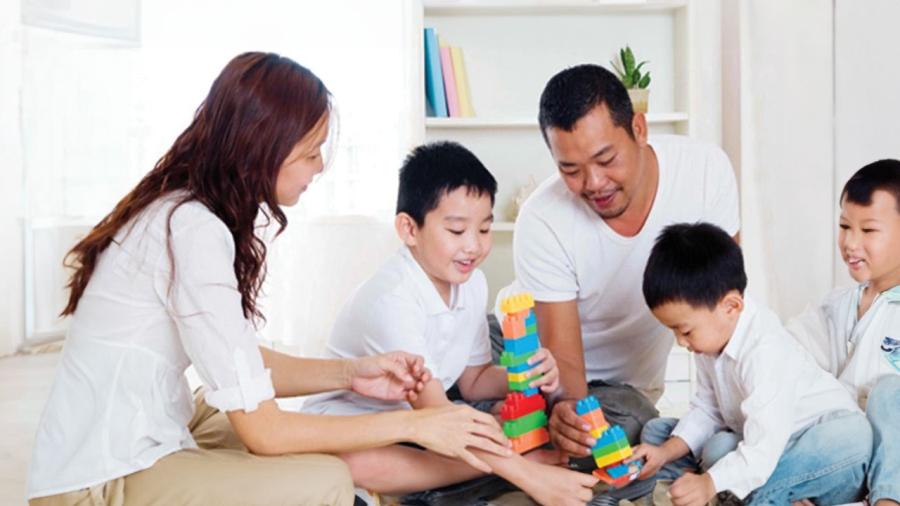Everyone wants their children to have the best opportunities in life, and education is an essential part of that. However, not everyone has the same approach to parenting, and everyone has different perceptions. Let’s take a look at these 6 levels of parenting education and see which level you are at:
Level 1: You are willing to spend money to take care of your children.
This is the first level of family education, which means parents are willing to invest money in their children’s development. At this level, children can have anything they want as long as it benefits them, and parents are willing to provide. Many parents believe that spending money on their children is a way to show love. Parents at this level can also use money to teach children good habits, such as rewarding them for their achievements and encouraging their efforts and progress.

Level 2: You are willing to spend time with your children.
At this level, parents are willing to dedicate more time to their children and be present for every step of their growth. No matter how busy they are, these parents make an effort to schedule and allocate time for their children. They care enough to listen to their children, share their joys and sorrows.
At this level, parents and children can find common interests, engage in activities together, and allow the children to feel the support and companionship of their parents. In this stage, parents and children can communicate effectively, creating a harmonious and warm family environment.
Level 3: Setting goals and guiding children’s learning
The third level of family education means parents start setting specific goals and guiding their children’s learning for the future. At this point, parents and children discuss and make specific plans, monitor the child’s progress, and provide timely encouragement and guidance. At this stage, parents guide their children to pursue their interests and cultivate their diverse talents.

Level 4: Learning scientific educational methods
At this level, parents learn and apply modern and appropriate educational methods to raise their children. They don’t complain about their children’s misbehavior and don’t control them too tightly. Instead, they actively observe and understand their children’s behaviors and the underlying reasons, intervening and addressing them positively.
Parents learn about new theories and experiences in modern education, and expand their knowledge. They actively acquire new skills and communicate effectively with other parents to share experiences and help their children develop better.
Level 5: Self-improvement
At this level, parents actively work on themselves to become better educators for their children. They understand that they need to learn and grow in order to nurture and educate their children effectively. They strive to become role models for their children through their words and actions. At this level, parents can enhance their theoretical knowledge in education by learning about psychology, education, and other related subjects. They can also participate in simplified courses to gain more knowledge from experts. Parents can reflect on their methods and effectiveness of education, constantly adjusting and improving their capabilities.
Level 6: Supporting children to become their true selves
At this level, parents understand that each child is unique, and they focus on their individual differences and developmental needs. Parents encourage their children to express their thoughts and emotions freely, respecting their choices and decisions, and giving them space and opportunities to develop.
At this level, parents support their children in discovering their strengths and talents, and help them nurture their self-esteem. Parents contribute to helping their children find their place and value as they grow up.
Whichever level your children are at
At different levels of parenting education, parents provide different qualities. At each level, parents can think deeper and improve their parenting methods for the best development of their children. Trust and inner respect are the best foundations for nurturing children. Parents are companions and a safe haven for their children, and children will grow up happy, full of love, without psychological trauma or distorted views of the world. The progress of family education requires continuous effort, maturity, and mutual support and understanding among family members.
If you are at different levels, expand your knowledge to become a better parent. Investing in your children’s education is investing in their future. If we neglect their childhood years, we will forever regret it.





































